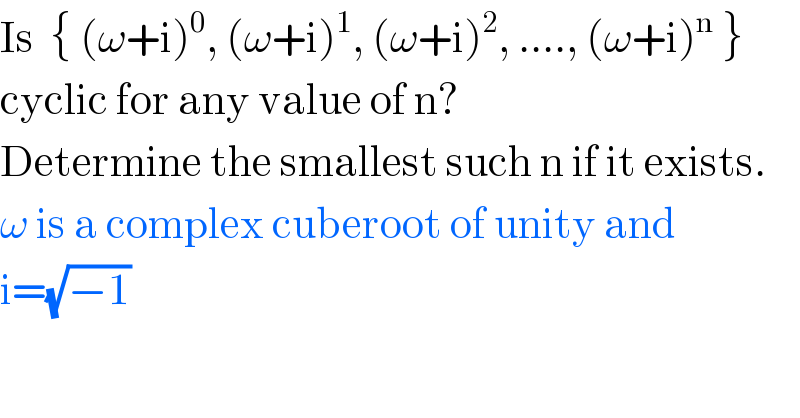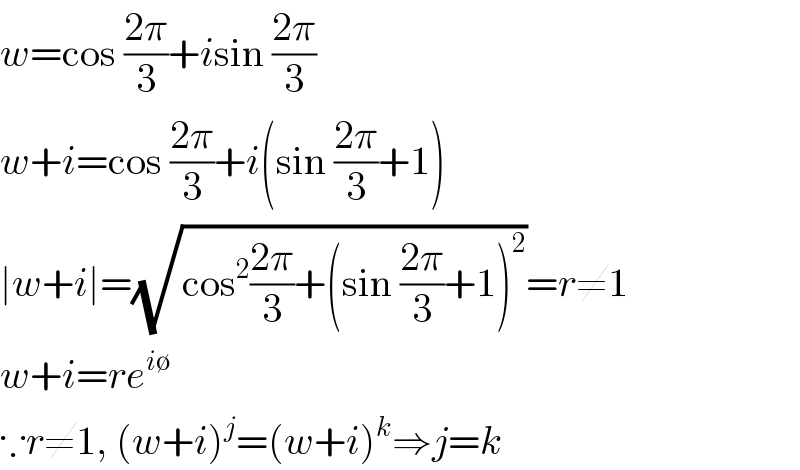
Question and Answers Forum
Question Number 8301 by Rasheed Soomro last updated on 06/Oct/16

Commented by 123456 last updated on 07/Oct/16

Answered by prakash jain last updated on 08/Oct/16

| ||
Question and Answers Forum | ||
Question Number 8301 by Rasheed Soomro last updated on 06/Oct/16 | ||
 | ||
Commented by 123456 last updated on 07/Oct/16 | ||
 | ||
Answered by prakash jain last updated on 08/Oct/16 | ||
 | ||
| ||